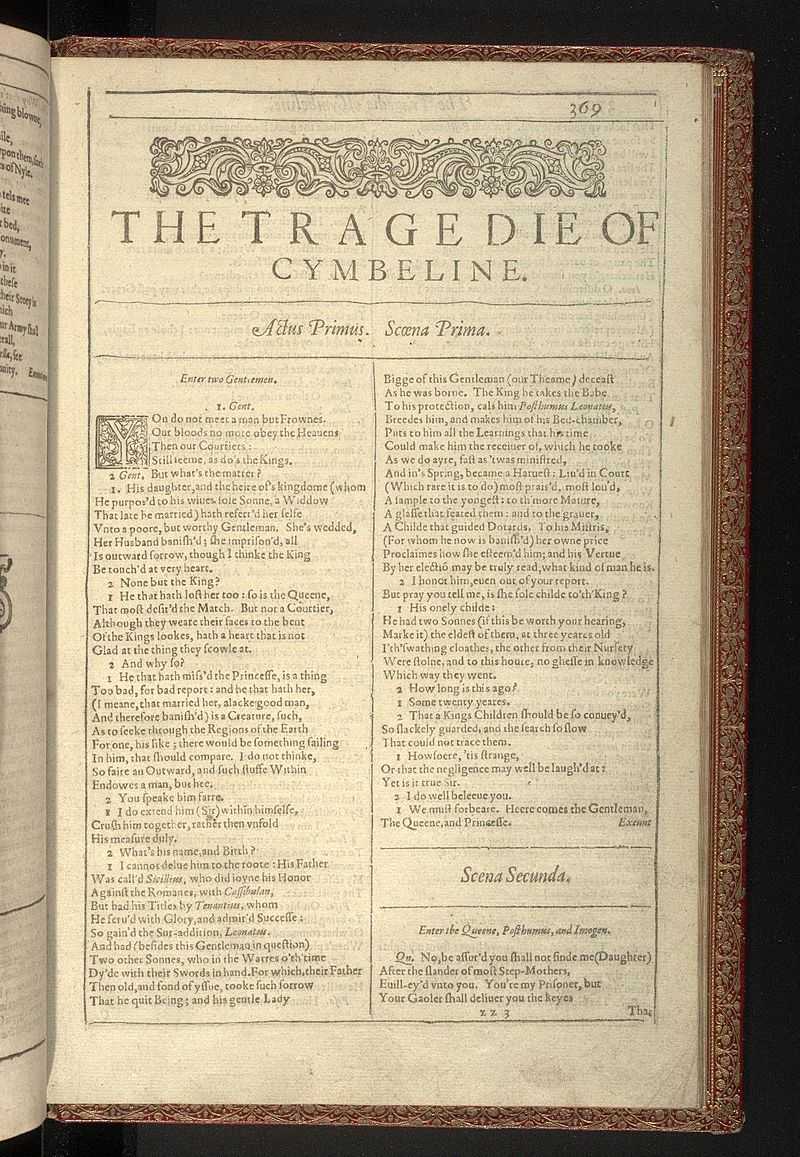



Cymbeline, also known as Cymbeline, King of Britain, is a play by William Shakespeare set in Ancient Britain (c. AD 10–14) and based on legends that formed part of the Matter of Britain concerning the early Celtic British King Cunobeline. Although listed as a tragedy in the First Folio, modern critics often classify Cymbeline as a romance or even a comedy. Like Othello and The Winter's Tale, it deals with the themes of innocence and jealousy. While the precise date of composition remains unknown, the play was certainly produced as early as 1611.

Imogen in her bed-chamber where Iachimo witnesses the mole under her breast. Illustrated by Wilhelm...
Date and text
The first recorded production of Cymbeline, as noted by Simon Forman, was in April 1611. It was first published in the First Folio in 1623. When Cymbeline was actually written cannot be precisely dated.
The Yale edition suggests a collaborator had a hand in the authorship, and some scenes (e.g., Act III scene 7 and Act V scene 2) may strike the reader as particularly un-Shakespearean when compared with others. The play shares notable similarities in language, situation, and plot with Beaumont and Fletcher's tragicomedy Philaster, or Love Lies a-Bleeding (c.1609–10). Both plays concern themselves with a princess who, after disobeying her father in order to marry a lowly lover, is wrongly accused of infidelity and thus ordered to be murdered, before escaping and having her faithfulness proven. Furthermore, both were written for the same theatre company and audience. Some scholars believe this supports a dating of approximately 1609, though it is not clear which play preceded the other.
The editors of the Oxford and Norton Shakespeare believe the name of Imogen is a misprint for Innogen—they draw several comparisons between Cymbeline and Much Ado About Nothing, in early editions of which a ghost character named Innogen was supposed to be Leonato's wife (Posthumus being also known as "Leonatus", the Latin form of the Italian name in the other play). Stanley Wells and Michael Dobson point out that Holinshed's Chronicles, which Shakespeare used as a source, mention an Innogen and that Forman's eyewitness account of the April 1611 performance refers to "Innogen" throughout. In spite of these arguments, most editions of the play have continued to use the name Imogen, and it has been suggested that "Imogen" may be intended to evoke the figure of "Innogen" but that the slight change in name is deliberate, as there are other characters in the play whose names appear to be slight variants of historical or pseudo-historical figures.

The first page of Cymbeline from the First Folio of Shakespeare's plays, published in 1623
